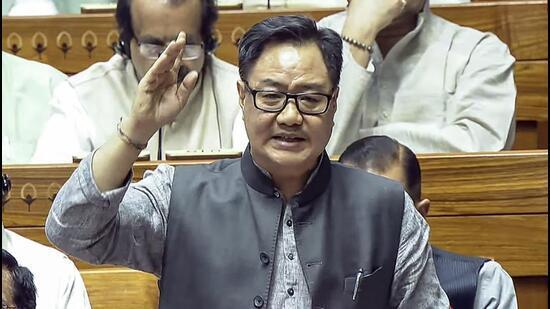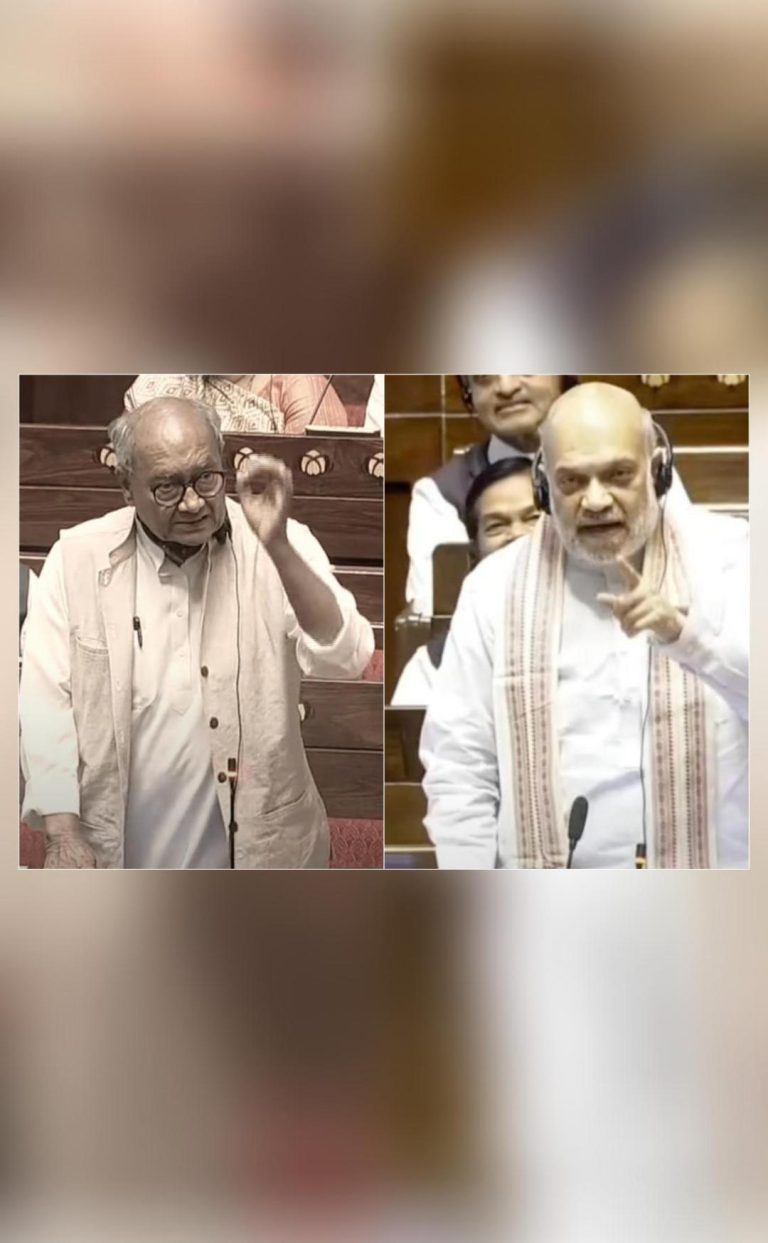
Opposition creates confusion & leaves House: Rijiju in Rajya Sabha
The recent session of the Rajya Sabha saw a heated debate on the Waqf (Amendment) Bill, with Union Minister Kiren Rijiju criticizing senior members of the opposition for creating confusion and not staying back to listen to the replies. The minister’s remarks came as a response to the opposition’s allegations of the government trying to alter the character of Waqf institutions.
During the discussions on the bill, MP Kapil Sibal compared the properties of Waqf bodies with those of other religious bodies, which Rijiju claimed created unnecessary confusion. The minister alleged that Sibal and other opposition members were not interested in hearing the government’s response to their concerns, and instead, chose to walk out of the House.
Rijiju’s statement was in response to the opposition’s allegations that the government was trying to alter the character of Waqf institutions, which are managed by the Waqf Board. The opposition claimed that the amendment bill aimed to give the government more control over the management of Waqf properties, which are primarily used for the welfare of the Muslim community.
However, Rijiju denied these allegations, saying that the amendment was aimed at bringing more transparency and accountability to the management of Waqf properties. He claimed that the government was only trying to streamline the process of appointment of Waqf Board members and ensure that the properties were used for the benefit of the community.
Despite the government’s assurances, the opposition remained skeptical about the amendment bill. Sibal, who is a senior member of the Congress party, claimed that the bill was an attempt to undermine the autonomy of Waqf institutions and give more power to the government. He also alleged that the government was trying to create a scenario where the Waqf Board would become a mere extension of the government.
Rijiju’s criticism of Sibal and other opposition members was not the only controversy that emerged during the debate. Some opposition members also accused the government of trying to suppress the voice of the Muslim community by not providing adequate representation to them on the Waqf Board.
The controversy surrounding the Waqf (Amendment) Bill has once again highlighted the complex and sensitive nature of religious issues in India. The bill has sparked a heated debate, with both sides claiming that their interpretation of the law is the correct one.
Despite the controversy, the government has maintained that the amendment is aimed at bringing more transparency and accountability to the management of Waqf properties. Rijiju’s criticism of the opposition’s tactics during the debate has only added to the controversy, with many questioning the motives of the opposition members who walked out of the House.
The debate on the Waqf (Amendment) Bill has also raised questions about the role of religion in Indian politics. The controversy has sparked a heated debate about the relationship between religion and politics, with some arguing that religion should be kept out of politics, while others believe that it is inevitable.
In conclusion, the controversy surrounding the Waqf (Amendment) Bill has once again highlighted the complex and sensitive nature of religious issues in India. The debate has sparked a heated controversy, with both sides claiming that their interpretation of the law is the correct one. Despite the controversy, the government has maintained that the amendment is aimed at bringing more transparency and accountability to the management of Waqf properties.
Source:



